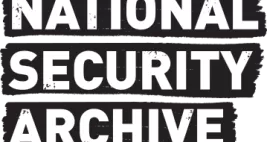January 17, 1963
American Embassy Rome Telegram 1411 to the Secretary of State, Washington, DC
This document was made possible with support from Carnegie Corporation of New York (CCNY)
In mid-January 1963 Harvard University professor Henry Kissinger met in Rome with senior Italian political leaders, all the way up to Fanfani and President Antonio Segni, to discuss U.S.-Italian relations, including the Jupiters. At that point Kissinger had no official role in government, although during 1961-1962, he had been a White House consultant. According to his report to the Embassy, the Italian leadership understood “intellectually” why the U.S. wanted to remove the missiles but it was sorry that Italy was losing its “one-up” position among non-nuclear members of NATO. (No one mentioned that Italy retained special status as a country that the U.S. had to consult before it used nuclear weapons based there.) Segni felt some “pique” that the Jupiter decision had been made during the missile crisis and that three months had passed before his government learned of it. “Almost everyone” believed, Kissinger told the U.S. Embassy, that there had been a U.S.-Soviet “agreement” on the Jupiter withdrawal, with the 1 April deadline seen as an important clue.
The U.S. embassy report on Kissinger’s findings arrived at the State Department the morning of 17 January 1963, with instructions for the Executive Secretariat to limit its distribution. Apparently the report, with its comments linking the Jupiters to the Cuban crisis negotiations, touched a nerve with Dean Rusk. He instructed Assistant Secretary Tyler to inform U.S. Embassies in Europe that Kissinger had no official role, they should not help him meet high-level officials, that he did not represent the “Adm’s views,” and that “we want to discourage him,” although as a “distinguished professor” he should be “treated with courtesy and friendliness.” Consequently Tyler drafted and sent that same day an “eyes only” telegram to U.S. ambassadors reminding them of Kissinger’s non-official status. Rusk did not explain what Kissinger had done that irritated him, but with his interest in dispelling rumors of a secret deal, he was probably irked not only by the thinking of Italian officials but by the fact that other State Department officials, including code clerks, would see the Embassy telegram, as limited its distribution was.
Author(s):
Associated People & Organizations
Associated Places
Associated Topics
Subjects Discussed
Document Information
Source
Original Archive
Rights
The History and Public Policy Program welcomes reuse of Digital Archive materials for research and educational purposes. Some documents may be subject to copyright, which is retained by the rights holders in accordance with US and international copyright laws. When possible, rights holders have been contacted for permission to reproduce their materials.
To enquire about this document's rights status or request permission for commercial use, please contact the History and Public Policy Program at [email protected].
Original Uploaded Date
Type
Language
Record ID
Original Classification
Secret

